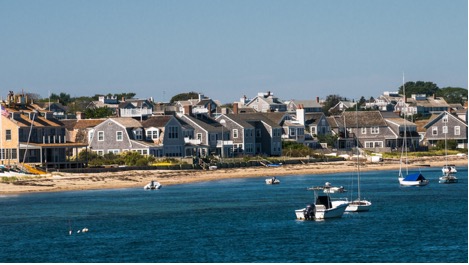
Gambling operations keep reshaping coastal communities—sometimes dramatically, sometimes so gradually the change is only clear years later. The explosion of land-based casinos and the rise of online platforms has brought new streams of cash and work. Reports from the American Gaming Association paint a picture of casino-fueled recoveries in places like the Gulf Coast after major storms or rough economic patches.
Talk to residents and you’ll hear about spikes in crime, worries over addiction, old infrastructure buckling under new crowds—or shifts that are harder to define, like how daily life and local cultures slowly morph. Some folks praise the economic lifeline, yet just as many seem wary about what’s lost along the way, whether it’s livelihoods, values, or even the character of a town. There isn’t a simple summary here; how it all shakes out depends entirely on the community itself, its past, and willingness to change.
On Mississippi’s Gulf Coast, legalized gambling helped cut unemployment by over 17,000 jobs from 1992 to 2012. The funds brought in through casino activity often end up shoring up roads, schools, even community centers. After Hurricane Katrina, Biloxi and Tunica funneled gambling money into recovery projects, which arguably softened the blow and sped up rebuilding.
When casinos move in, small local businesses often feel the squeeze. Restaurants and neighborhood pubs struggle when casinos start subsidizing meals and drinks; foot traffic drifts away, sometimes for good. Several bars and eateries shut down, and the selection of local spots thins out—owners forced out of scenes they helped build for decades. Research from Nevada and Florida indicates a hit above 10% to non-gambling hospitality revenues after big new casinos appeared. As entertainment options shift to revolve more around gambling, the overall identity of these towns gets harder to recognize—something intangible, maybe, or perhaps just the price of change.
Online gambling has changed the game in ways that some people probably didn’t see coming—not only is access easier, but temptation is pretty much everywhere now, especially in towns by the water. Growth in online slots and other remote betting options means that residents engage with gambling not only at physical locations but through smartphones and home computers. The proliferation of online slots and live dealer games has created a constant gambling environment, heightening risks for problem gambling and associated harms.
A 2023 Public Health study put coastal spots in the UK at the top for gambling providers per capita. Clinics from Atlantic City to Singapore report upticks in gambling-related calls and admissions since 2018, with online gambling frequently mentioned as a factor. Even traditional spaces—seaside cafés, fish stalls, public squares—wind up splashed with digital ad banners or sponsored Wi-Fi. The issue looks sharper for adults and for folks working lower-wage jobs; immediate, constant access can make losing track of limits almost effortless. In the end, there’s this sense of gambling becoming woven into the background and harder to keep in check across both city blocks and quiet shorelines.
After casinos start up along the coast, crime stats tend to shift. Florida’s Department of Law Enforcement found theft, fraud, and prostitution numbers ticking upward in certain counties between 1995 and 2005. In Biloxi, reports say bank robberies roughly doubled in the decade after gambling was legalized; it’s hard to ignore the parallel increase in gambling losses at the local level. First responders and police get stretched thinner, caught between new emergencies and old obligations that haven’t gone away.
Health professionals cite addiction and secondary problems: alcohol misuse, stress, and relationship breakdowns. Qualitative studies from some coastal tribal communities mention erosion of family bonds, tension, and escalating substance use. The redesign of areas around major casinos doesn’t always help, with layouts encouraging heavy eating and drinking. For communities not prepared for this sudden shift, the cumulative effect on public health can hang around much longer than expected.
Physical infrastructure is another pressure point. In Biloxi, after the casino building boom of the early ‘90s and again post-2005, the usually unremarkable sewage systems were pushed to the limit—almost breaking, local reports say. Add in pollution, wall-to-wall traffic, and enough noise to drive out the starlings, and suddenly environmental reviews or emergency overhauls don’t seem like annoying red tape, but real necessities. Coastal spots, by nature, don’t have as much margin for error; they’re more fragile than they appear on sunny afternoons.
Overlay climate change and things get messier. Hurricanes, flooding, and creeping sea levels put both casinos and dependent towns on shaky ground. Entire local economies can stumble if a big casino closes for repairs after a storm. The larger conversation now—one that policy folks are forced to have—seems to turn on weighing quick economic gain against, well, literally having dry land to stand on in twenty years.
There’s no question that gambling brings budget relief and jobs to lots of coastal communities. But, if anything, this reliance sometimes seems like it covers up deeper risks. Without meaningful oversight or involved public health efforts, harm sneaks in under the radar. Educating residents on safer betting, backing up families who get blindsided by addiction, putting real money into infrastructure—these steps might not solve everything, but they can help.
Sustainable growth probably comes down to a kind of shared watchfulness (not the catchiest phrase, I know) among governments, businesses, and the people living through these changes. In the end, calling for responsibility isn’t extra; it’s probably the only way to keep these communities livable over the long haul—though, admittedly, reaching that balance is much harder than most casino ads let on.